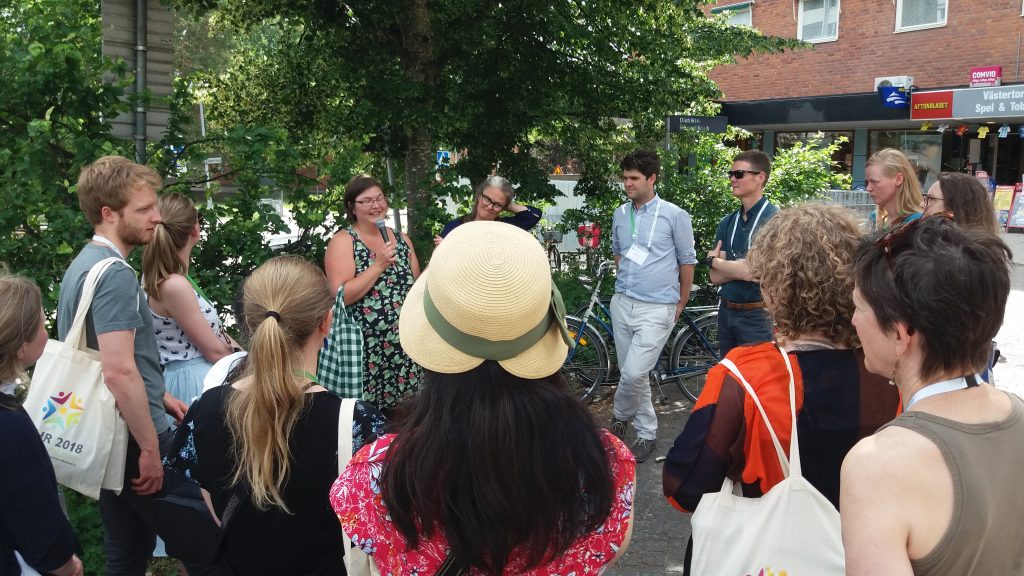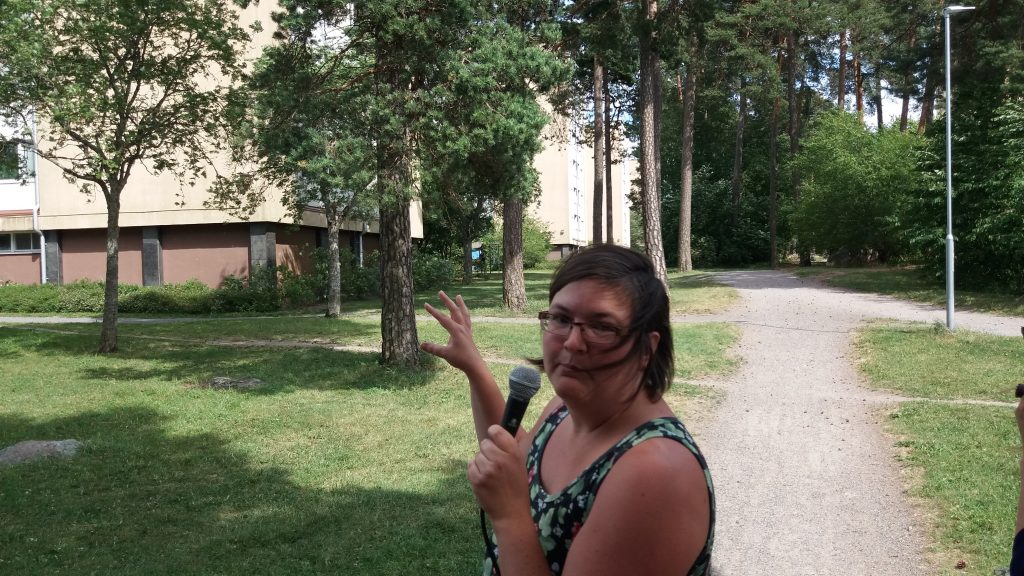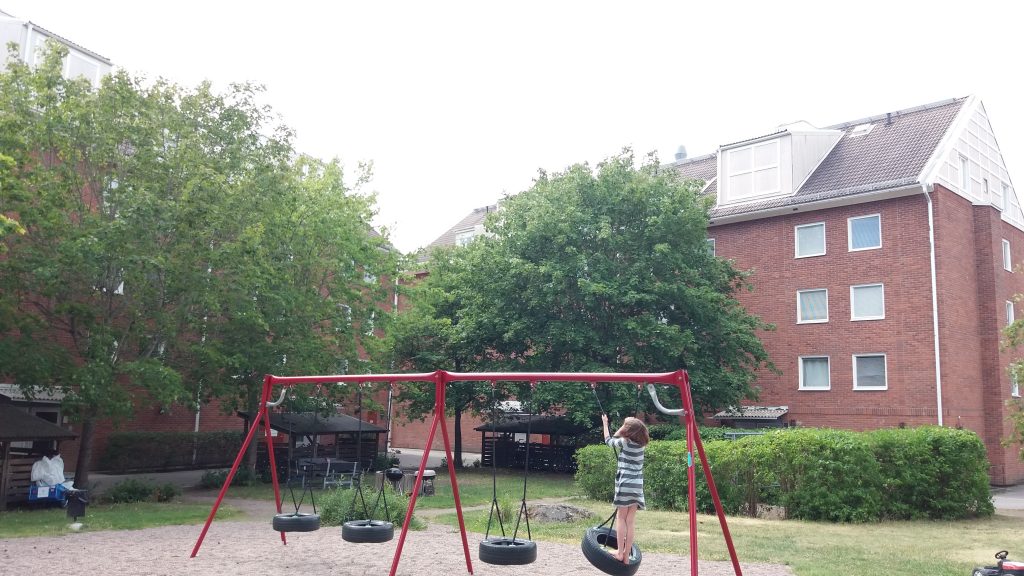For decades, people have been struggling to secure a place to live in big cities. It is not simply because of housing shortages, but also because our housing system often is unfair.
A story of tenants in Uppsala, Sweden
It was June in 2018. I joined a field trip to municipal housing in Eriksberg district in Uppsala, Sweden. It was a half-day programme during a housing research conference. The European Network for Housing Research organised it. When I saw this event, I immediately signed up. It was definitely a good learning opportunity. Sweden is well known for its good government housing programmes. Under soft sunlight in the middle of the day, we arrived at the field visit site, not far from the city centre. The modern design apartment blocks were in peaceful neighborhoods with full of green and open spaces. There were also good community centres and childcare facilities. Indeed, Sweden deserved their high reputation for government housing.

“My happiness didn’t go long. It was only a 3 month dream”.
We had a chance to listen to the experiences of a resident. She moved in this housing a half year ago. “I was so happy to find this place. It was perfect. The rent is affordable, there is enough open space outside for my kid, and the little forest just behind of my block was so perfect”. But, she started telling another story with a bit of a quiver in her voice. “My happiness didn’t go long. It was only a 3 month dream”.
Over her residential area, there has been a plan for urban renewal and redevelopment. The Municipality has discussed the plan for a long time. But only recently, she learned about it. Nobody informed her about it when she moved in. She had to struggle to pull out more detailed information from the government. The project will clean the trees and lovely forests around the blocks. She wanted to know how her

“One day, my neighbour showed me a leaflet. An urban renewal plan over here… I realized, the municipality sent it only to homeowners. The tenants like me were totally excluded.”

Eriksberg Municipal housing, Uppsala, Sweden
In Eriksberg, 2,400 dwellings are to be built during the coming years. The local
Policy indicators do not capture an unfair housing situation
Yes, something was going wrong in Uppsala. Surprisingly, experts and policymakers hardly take into account this unfair situation for evaluating housing policy. Whenever you hear any news about housing, you will frequently hear: “housing shortage”, “falling/rising housing price”, or “new apartments to be built”. Or, if you are a bit interested in the news of the global south, “one out of three people in cities are living in slums”. The numbers, physical conditions and prices of housing have been key indicators to define housing problems and policy outcomes. And additionally, how satisfied people are with their houses.
Based on these indicators, the experts make a decision and have an influence on your efforts for securing a place to live. This
Some examples: how the current indicators are lacking to tell about unjust outcomes
How the current indicators of housing policy are lacking to tell about unjust outcomes? Let’s imagine a housing project that perfectly meets the current policy indicators. Enough houses are produced. The houses have good physical conditions in terms of floor areas, windows, housing utilities, gardens, and balconies. They are also green areas nearby. The purchase and rent prices are affordable. A high percentage of residents report that they are happy with their house. This project will be evaluated as a good housing policy outcome improving the residents’ well-being.
However, we can easily think about scenarios that people are still insecure and in unfair situations.
What if she is renting the house but there is no proper system for protecting tenants’ right? She becomes vulnerable to the landlord. She may be forced to accept any unfair conditions from the landlord and endure violations of her dignity.
What if she cannot have a joint tenure title over the house, even if she also invested together with husband? She may have to depend on her husband for her pension. Or she has to be obedient to her husband for securing a place to stay even if she does not want to. She has lower levels of freedom to choose the life that she values.
The project implementer may say, ‘We have benefited many people. It is a successful project.’ What if only those who can easily
We need to discuss more than ‘nice houses’
“Central to analysis would be a focus on identifying how and where unjust outcomes are currently occurring.
Mike Berry (2017:308)
Ethics and justice are not properly addressed in the housing policy discussion. Professor Mike Berry, a leading scholar of urban studies and public policy at RMIT’s Centre for Urban Research, criticizes that public policy discussions have neglected ethical issues. Housing policy is no exception to this. He highlights “Central to (policy) analysis would be a focus on identifying how and where unjust outcomes are currently occurring”.
We have long been focused on building more houses, more possession of houses and nicer houses to live. Where is the space for ethical issues and injustice in our housing welfare? Are you living in a fair housing system? In recent years, public policy researchers are increasingly discussing how to bring
Bringing ethics to the centre of housing policy discussion
“The nature of modern economics has been substantially impoverished by the growing distance between economics and ethics.”
Amartya Sen (1987:7)
The tenant’s story in Uppsala and the list of possible unfair scenarios in a housing project are telling us that we need to be concerned with more than just material and monetary issues. Many people are struggling with finding stable and adequate housing. This cannot be solved only by building more houses. This leads to a strong need for moving our attention to our sense of fairness, inequality
Amartya Sen, capability and social justice | Amartya Sen, an economist